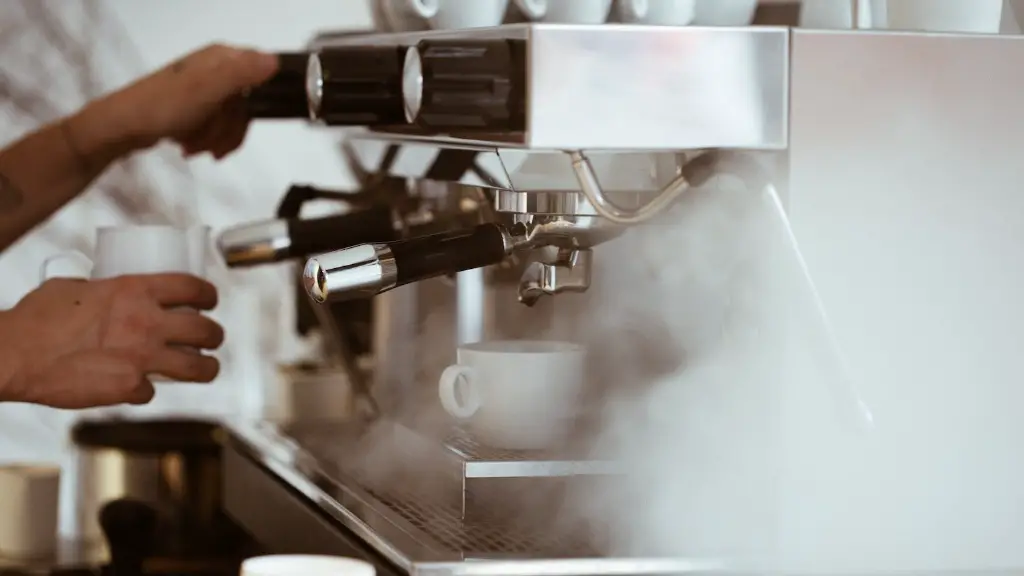Coffee and Cholesterol
It is a widely accepted fact that diets high in cholesterol can lead to heart disease, and high cholesterol is dangerous for one’s health. So, if someone has high cholesterol, is it still safe to drink coffee? This article will explore coffee’s effects on cholesterol levels, whether coffee can make high cholesterol worse, and which types of coffee are the most beneficial for someone with high cholesterol.
Does Coffee Increase Cholesterol?
In short, no. Studies have indicated that coffee has no significant effect on cholesterol levels and can, in fact, reduce it. Some experts have suggested that one or two cups of coffee per day may help improve cholesterol, although this has yet to be confirmed by extensive studies.
In the past, it was believed that coffee could cause an increase in cholesterol due to its caffeine content. However, recent studies have found that there is no link between caffeine intake and higher cholesterol levels. This is good news for coffee lovers with high cholesterol, as they can drink their morning cup of joe without worrying about it exacerbating their condition.
Does Coffee Have Any Benefits?
While coffee won’t necessarily reduce cholesterol on its own, some studies suggest that regular consumption of coffee may help reduce the risk of other health conditions, such as diabetes and hypertension. Additionally, coffee is a great source of antioxidants, which can help boost overall health and prevent the onset of various diseases.
In addition, drinking coffee may have a positive effect on mental health. Studies have found that regular coffee drinkers tend to have lower levels of anxiety and better cognitive functions. Coffee also contains caffeine, which can help to keep energy levels up and can make people more alert.
Which Types of Coffee are Best for People with High Cholesterol?
When it comes to choosing the best types of coffee for people with high cholesterol, the best option is to avoid any coffee that contains added sugar and other unhealthy ingredients, such as cream and artificial sweeteners. Unsweetened black coffee and organic espresso are both good options. However, when in doubt, it’s always best to consult a health practitioner before indulging in any type of coffee.
Organic coffee is a great option as it is free from pesticides and other harmful chemicals. Additionally, organic coffee has been found to contain larger amounts of antioxidants. These antioxidants are beneficial for anyone with high cholesterol, as they can help to reduce inflammation, which in turn can help to reduce cholesterol levels.
Coffee and the Cholesterol Medications
When it comes to people who have been prescribed cholesterol-lowering medications, it is important to consult with a doctor before drinking coffee. While it is unlikely for coffee to interfere with the effectiveness of these medications, it can be beneficial to be mindful of any potential interactions. Also, it is important to note that some cholesterol medications come with warning labels that indicate that coffee should not be consumed while taking the medication.
It’s also important to remember that consuming excessive amounts of coffee can lead to an increase in heart rate, which can be dangerous for people who are on certain medications. With this in mind, it’s best to limit the consumption of coffee to no more than two cups per day.
Conclusion
Overall, it is safe for people with high cholesterol to drink coffee. While coffee won’t drastically lower cholesterol levels, it can contribute to better overall health and may even help reduce the risk of other medical conditions. Additionally, coffee drinkers who have high cholesterol should opt for coffee that does not contain added sugar or other unhealthy ingredients, and should always be mindful of any potential interactions with medications.
Coffee for Preventing Cholesterol Buildup
Research has shown that coffee can be beneficial for preventing cholesterol build-up in the arteries. By lowering levels of LDL, or bad cholesterol, coffee can reduce the hardening of arteries and associated risk of cardiovascular disease. The antioxidants in coffee can help to reduce inflammation in the body which, in turn, can help to reduce the risk of cholesterol build-up.
It’s important to note, however, that coffee will not be effective if consumed in excessive amounts. Experts suggest that drinking up to three cups a day is recommended for significant benefits, but it’s important to note that exceeding this amount can have a negative effect and can even contribute to an increase in cholesterol levels. Therefore, it is best to stay within the recommended parameters when consuming coffee for this purpose.
Decaffeinated Coffee and Cholesterol
Many people believe that decaffeinated coffee beverages are healthier than their caffeinated counterparts. It is true that decaffeinated coffee has a lower level of caffeine, but its effect on cholesterol hasn’t been proven to be any different than regular coffee. While decaffeinated coffee may be an option for those who want to reduce their intake of caffeine, it won’t do much to reduce cholesterol levels.
It is also important to remember that decaffeinated coffee is still coffee and contains many of the same compounds, such as antioxidants, as regular coffee. Therefore, if someone is looking to reduce their cholesterol levels, they should still be mindful of their consumption levels of decaffeinated coffee and avoid adding unhealthy additions, such as cream and sugar.
Coffee Alternatives for High Cholesterol
As an alternative to coffee, there are plenty of other drinks that can help to reduce cholesterol levels. For example, green tea has been found to have a positive effect on cholesterol levels, as it contains a number of antioxidants and polyphenols, which help to reduce harmful LDL cholesterol. Additionally, tea in general, whether it is green, black or herbal, has been found to reduce bad cholesterol and improve the health of the heart.
For people who don’t like tea, there are plenty of other options that are beneficial for cholesterol levels, such as juices made with fresh fruits and vegetables. Fruit juices, such as orange and cranberry, are high in antioxidants and can help to reduce bad cholesterol levels, while vegetable juices, such as carrot, spinach and celery, are rich in vitamins and minerals and can aid in the reduction of cholesterol.
Drinking Coffee with High Cholesterol
In conclusion, it’s safe to say that people with high cholesterol can consume coffee in moderation. Caffeinated coffee won’t have any negative effect on cholesterol levels, as long as it’s consumed in sensible amounts. Additionally, coffee may have a beneficial effect on overall health and may even reduce the risk of other medical conditions. It’s important to remember, however, that coffee shouldn’t be consumed in excessive amounts and that there may be potential interactions with medications.
Coffee Effects on Cholesterol in Children
It is generally accepted that coffee consumption is safe for adults, however, it is not recommended for children. This is because children’s metabolism is more fragile, and they are more sensitive to the effects of caffeine. Additionally, children’s bodies are still developing and may not be able to handle the effects of caffeine consumption as effectively as adults.
Due to the fact that coffee has not been studied extensively in relation to children’s cholesterol levels, it is generally recommended that children do not consume coffee. However, if a child does consume coffee, it is important to ensure that it is in limited amounts and without any added sugar or unhealthy ingredients.
Coffee and Cholesterol: Alternatives for Coffee Lovers
For those who are looking for alternatives to coffee, there are plenty of other ‘coffee-like’ beverages on the market. These include chicory root coffees, which have a similar taste and texture to coffee and are generally caffeine-free. Additionally, there are a number of herbal and fruit teas that have a similar flavor, such as rooibos, chamomile and green tea. All of these alternatives are great for people with high cholesterol who are looking for a ‘coffee-like’ beverage without any added sugar or unhealthy ingredients.





